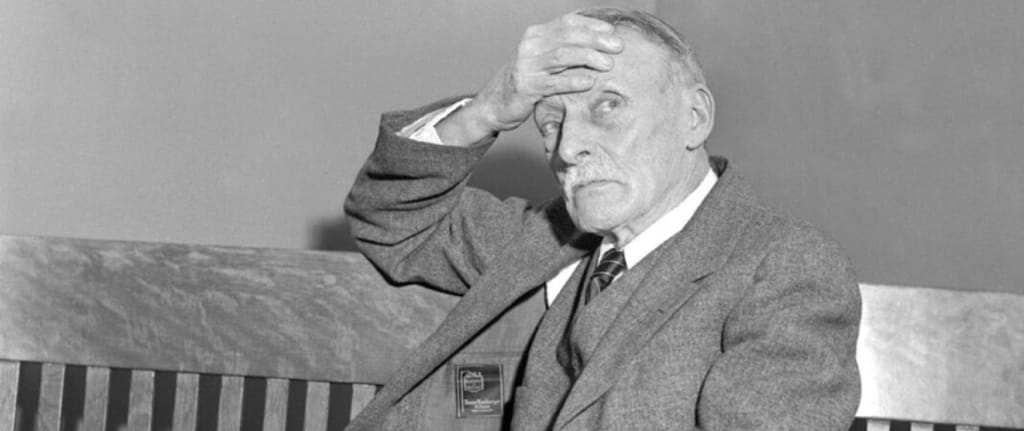Content warning
This story may contain sensitive material or discuss topics that some readers may find distressing. Reader discretion is advised. The views and opinions expressed in this story are those of the author and do not necessarily reflect the official policy or position of Vocal.
The Werewolf of Wysteria
The disturbing story of Serial Killer Albert Fish

This article deals with crimes against children, so if that triggers you, please turn away now.
During one point in my life, I studied Serial Killers in a Criminal Justice class. Reading about all of the horrid things people could do to others, was extremely disturbing, but there was one name that still makes me nauseous to think of to this day. Albert Fish might not be a name that immediately springs to mind when someone says serial killer, not like Ted Bundy or John Wayne Gacy, but Albert Fish, also known as "The Werewolf of Wysteria" and "The Brooklyn Vampire," committed heinous crimes against children, and Fish's depravity knew no bounds.
Albert Fish was born on May 19, 1870, in Washington, D.C. His early life was marred by tragedy and hardship, and some believe that was what set the stage for the horrors he would commit later in life. Fish endured a tumultuous childhood, marked by physical abuse and an unstable family environment. His father died when he was just five years old, leaving him vulnerable to the influences of his mentally ill mother. She subjected him to harsh beatings and introduced him to disturbing practices, such as rubbing his body with urine and forcing him to watch her undress. These early experiences were a major cause that played a significant role in shaping Fish's disturbed psyche.
Disgustingly, Fish's criminal activities were primarily centered around children. It included child abduction, molestation, and murder. His first known killing took place in 1924 when he abducted and murdered eight-year-old Francis McDonnell. Over the next decade, Fish continued his reign of terror, preying on vulnerable children across several states. His victims ranged in age from as young as three to as old as twelve.
Fish was brutal and sadistic. He would often target disadvantaged children, believing they were less likely to be missed or investigated by authorities. After the abduction, he would take his victims to secluded locations, where he would subject them to unimaginable torture, including mutilation and cannibalism. Fish derived a perverse pleasure from inflicting pain and suffering upon his innocent victims.
However, Fish's atrocities did not go unnoticed. His downfall came in 1934 when he sadistically sent a letter to the parents of ten-year-old Grace Budd, whom he had kidnapped and killed. The letter detailed the horrifying details of his crime, and through a series of events, it eventually made its way to the authorities. The police traced the letter back to Fish and apprehended him.
During his trial, Fish's psychopathic nature became evident. He admitted to killing several children and even claimed to have molested over 400 victims. Fish's defense team attempted to use an insanity plea, highlighting his history of mental illness, but the jury found him sane and guilty of his crimes. He was sentenced to death by electric chair.
The case of Albert Fish shocked the nation, both for the magnitude of his crimes and the gruesome details that emerged during the trial. Fish's sadistic actions left a lasting impact on the collective psyche of society. Some positive changes did come from his case however, and led to increased awareness of child safety and the creation of organizations like the National Center for Missing and Exploited Children.
Albert Fish remains one of the most disturbing serial killers for me, and many others who delve into researching serial killers or true crime . His horrific crimes against children and his sadistic nature continue to churn my stomach decades after first learning about him. The legacy of his crimes in my opinion lives on as a stark reminder of the importance of protecting children.
About the Creator
Enjoyed the story? Support the Creator.
Subscribe for free to receive all their stories in your feed. You could also pledge your support or give them a one-off tip, letting them know you appreciate their work.





Comments
Kat Tamayo is not accepting comments at the moment
Want to show your support? Send them a one-off tip.